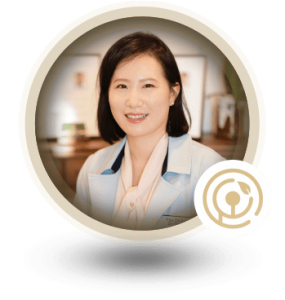Acupuncture is a traditional Chinese medicine practice that involves inserting thin needles into specific points on the body. It is believed to stimulate the body’s natural healing processes and promote overall wellness. In recent years, acupuncture has gained popularity as a complementary therapy for fertility treatments, such as in vitro fertilization (IVF) and intrauterine insemination (IUI). But can acupuncture really improve your chances of getting pregnant? Let’s take a closer look.
HOW DOES ACUPUNCTURE WORK FOR FERTILITY?
Acupuncture is thought to work for fertility in several ways. First, it can help regulate the menstrual cycle and improve blood flow to the reproductive organs, which can increase the chances of ovulation and conception. Second, it can reduce stress and anxiety, which can have a negative impact on fertility. Third, it can improve the quality of eggs and sperm, making them more viable for fertilization. Finally, it can support the overall health of the body, including the endocrine and immune systems, which are essential for fertility.
WHAT DOES THE RESEARCH SAY?
While there is limited scientific evidence on the effectiveness of acupuncture for fertility, some studies have shown promising results. For example, a 2018 meta-analysis of 26 randomized controlled trials found that acupuncture can significantly increase the clinical pregnancy rate and live birth rate among women undergoing IVF. Another study published in the Journal of Clinical Endocrinology & Metabolism found that acupuncture can help regulate menstrual cycles and improve ovulation in women with polycystic ovary syndrome (PCOS).
Overall, many fertility specialists and practitioners believe that it can be a valuable complementary therapy for those undergoing fertility treatments.
WHAT CAN YOU EXPECT DURING AN ACUPUNCTURE SESSION?
During an acupuncture session for fertility, you will typically lie down on a treatment table while the acupuncturist inserts thin needles into specific points on your body. The needles are typically left in place for 30 minutes while you relax. You may feel a slight sensation or mild discomfort when the needles are inserted, but most people find acupuncture to be a relaxing and painless experience.
It’s important to choose a qualified and licensed acupuncturist who has experience working with fertility patients. Your acupuncturist will work with you to develop a treatment plan that is tailored to your specific needs and goals.
FINAL THOUGHTS
Acupuncture may be a helpful complementary therapy for fertility. If you’re struggling to conceive, it’s important to work with a qualified healthcare provider who can help you explore your options and develop a personalised treatment plan. With the right care and support, you can increase your chances of conceiving and starting a family






